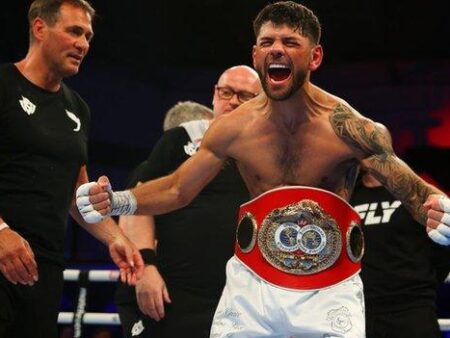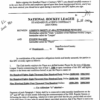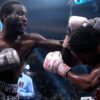The grass of Wimbledon has barely settled, yet the conversation around Carlos Alcaraz remains as intense as the final match itself. His loss to Jannik Sinner in a gripping championship encounter has not merely prompted analysis of tactics and performance; it has ignited a broader discussion, particularly from a well-respected, and frankly, rather opinionated quarter of the tennis world: the Spanish camp. And as always, the most profound insights, or criticisms, tend to come from those with the deepest understanding of the game.
In the aftermath of the All England Club final, the Spanish press, while acknowledging Sinner’s triumph, didn’t shy away from dissecting Alcaraz’s game. Phrases like `Intratable` (Untouchable, for Sinner) and `Destrozo` (Devastation, for Alcaraz`s performance) painted a vivid picture of disappointment. One might argue that such harsh appraisals are perhaps a tad excessive for a 22-year-old who already boasts five Grand Slam titles. But then, such is the nature of elite sport: success is expected, and any deviation is scrutinized.
The Maestro`s Critique: Toni Nadal Weighs In
Days after the final, the discourse gained significant traction with remarks from Toni Nadal, the astute uncle and former long-time coach of Rafael Nadal. A man whose career has been synonymous with meticulous preparation and strategic depth, Toni Nadal`s words carry considerable weight. His assessment, delivered to El Pais, poured a fresh dose of fuel onto the embers of debate surrounding Alcaraz`s performance.
“I think Carlos should have tried to vary his game a bit more, as Grigor Dimitrov was doing, for example,” Toni Nadal observed, offering a specific, technical point of contention. He elaborated, “In his fourth-round match, Grigor was managing to break his opponent`s momentum, winning the first two sets by varying his game a lot, something I didn`t see Alcaraz doing.”
It was a stark, almost surgical critique. The Wimbledon final, according to Nadal, was “not a spectacular match,” and Alcaraz “lowered his intensity, showed a more intermittent and irregular game, then also lost confidence in himself and the possibility of winning, and in fact lost.” This isn`t just about losing a match; it`s about the manner of defeat, the perceived rigidity in Alcaraz’s approach, and a visible dip in self-belief.

Beyond the Baseline: The Deeper Implications
Toni Nadal’s comments resonate with a broader narrative that has occasionally shadowed Alcaraz`s meteoric rise. There have been whispers, sometimes amplified, about Alcaraz`s general conduct off the court – particularly with his Netflix documentary offering a more intimate, perhaps unfiltered, glimpse into his life. More critically, there’s the recurring pattern of tactical missteps and moments of significant “blackout” during matches, which reportedly displease his coach, Juan Carlos Ferrero, and his management team.
Consider the revealing moment at the end of the third set in the Wimbledon final, when Alcaraz turned to his corner and candidly exclaimed, “From the baseline, he (Sinner) is better than me.” It was an admission of tactical defeat, echoed later in his press conference where he confessed to “not knowing what to do” at a certain point. This level of on-court despair from a top-tier athlete is rarely seen, and it speaks volumes about the psychological pressure and the strategic cul-de-sac he found himself in.
The crux of the matter is not whether Alcaraz wins—he clearly does, with a “superhuman talent” that almost ensures it—but whether he wins optimally, consistently, and without these periods of strategic paralysis. Against opponents of lesser caliber, his raw talent and athleticism often suffice. Against Jannik Sinner, a rival who matches him in intensity and, arguably, surpasses him in mental fortitude and strategic consistency, these vulnerabilities become glaring. The article provocatively suggests a psychological shift: Sinner, once potentially under Alcaraz`s mental spell, might now be firmly “in Carlitos`s head.”
A Champion`s Retreat and the Road Ahead
How does a young champion, reeling from a significant defeat and facing public scrutiny, respond? Alcaraz has reportedly gone off social media and bypassed his usual post-tournament decompression in Ibiza. Instead, he returned to his home in Murcia, seeking solace among family and lifelong friends, even making a low-key visit to his trusted barber. This retreat to his roots suggests a desire to process, regroup, and rebuild away from the glare of the public eye. It is, perhaps, the ultimate testament to the sting of this loss, which is likely the biggest disappointment in his young, yet already illustrious, career.
The comments from Toni Nadal, while sharp, are not meant to diminish Alcaraz`s immense achievements. Rather, they serve as a reminder that even prodigies have areas for improvement, especially when confronting rivals of equal, or even superior, mental and strategic discipline. The Alcaraz-Sinner rivalry is rapidly shaping up to be the next great spectacle in men`s tennis, a dynamic interplay of power, athleticism, and increasingly, mental fortitude. For Alcaraz, this Wimbledon defeat, and the subsequent critiques, may well be a pivotal moment – a challenging, but necessary, lesson in the ongoing pursuit of tennis immortality.










